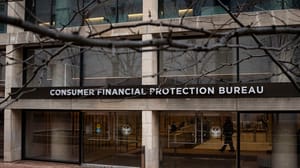
Excess Corporate CashExcess Corporate Cash
Logic dictates that valuation experts assume that cash is worth its face value in majority interest or control scenarios. And that assumption makes sense: In such instances, control of a company provides access to and control over the assets, including cash. But experts fail to see that in minority interest valuations for both private and public companies, a different perspective is required particularly
March 1, 2010
Gregory A. Barber
Logic dictates that valuation experts assume that cash is worth its face value in majority interest or control scenarios. And that assumption makes sense: In such instances, control of a company provides access to and control over the assets, including cash.
But experts fail to see that in minority interest valuations for both private and public companies, a different perspective is required — particularly when excess cash is held within a private operating business.
There are many reasons why excess cash in minority interest valuations should be evaluated carefully and valued separately from a company's operations. Imagine, for example, that a company has entrenched management and poor investment opportunities; clearly, i...
Unlock All Access Premium Subscription
Get Trusts & Estates articles, digital editions, and an optional print subscription. Choose your subscription now and dive into expert insights today!
Already Subscribed?





